1. Sand Kittens
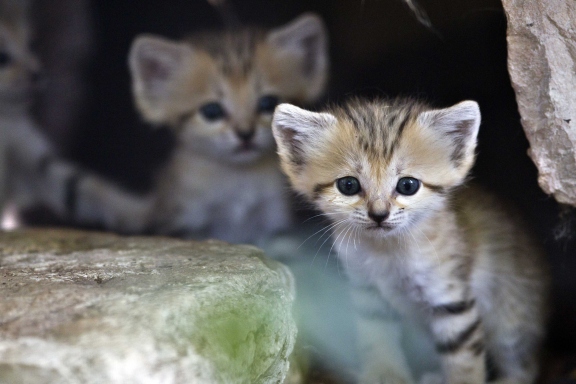 |
| Photo credit: Nir Elias / Reuters |
The International Union for the Conservation of Nature (IUCN) has listed the sand cat (Felis margarita) as a ‘threatened species'.
2. Fennec Fox
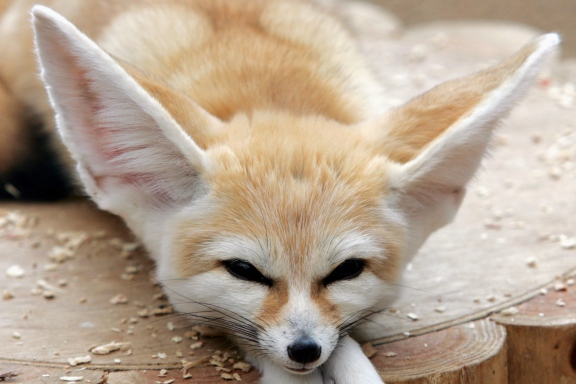 |
| Photo credit: Yuriko Nakao / Reuters / Corbis |
Native to North Africa and the Middle East, the Fennec fox isn’t currently considered an endangered species, but its habitat is under threat from human. Fennec fox have large ears that help it hunt at night and keep cool by radiating the desert heat.
3. Egyptian Tortoise
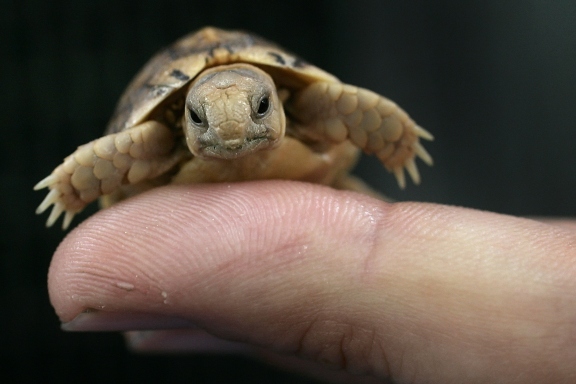 |
| Photo credit: Tony Gentile / Reuters / Corbis |
The Egyptian Tortoise (Testudo kleinmani), also known as Kleinman’s tortoise or Leith’s tortoise, is believed to be extinct in Egypt, and thousands have been exported to the U.S. and other countries for breeding in captivity. It is considered critically endangered by the IUCN.
4. Sea Otters
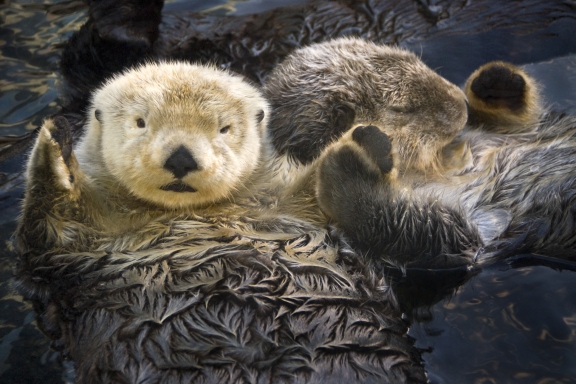 |
| Photo credit: Alaska Stock / Corbis |
Sea otter was hunted for their pelts to near extinction. Sea otter populations in the Pacific Northwest dwindled to less than 2,000 animals during the early part of the 20th century. Today, they are protected by law, and the species population has rebounded to 100,000 to 150,000.
5. Mexican Axolotl
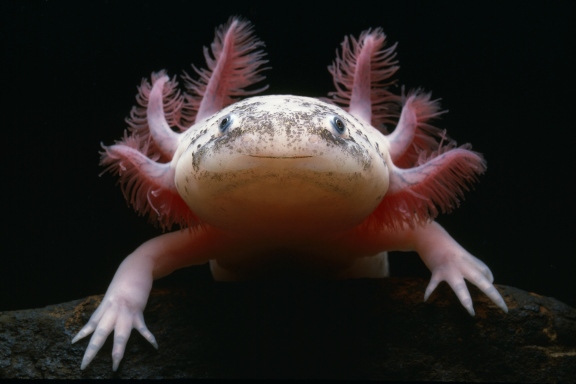 |
| Photo credit: Stephen Dalton / Minden Pictures / Corbis |
The axolotl is a species of salamander, spending its entire life underwater. The Axolotl is nearly extinct in the wild, with fewer than 1,200 animals remaining in the Xochimilco area of central Mexico, its last remaining unspoiled habitat.
6. Slow Loris
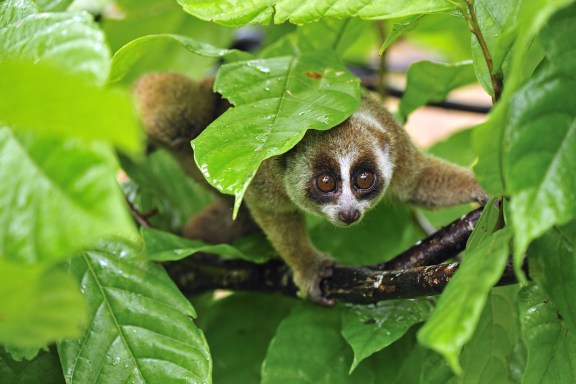 |
| Photo credit: Thomas Marent / Minden Pictures / Corbis |
The slow loris is the world’s only venomous primate. It keeps its poison in a sac near the elbow, which it sucks out and reportedly swirls around in its mouth before delivering a dangerous bite. Native to Indonesia, the slow loris is being hunted into extinction, thanks to the supposedly medicinal and spiritual qualities of its flesh.
7. Pika
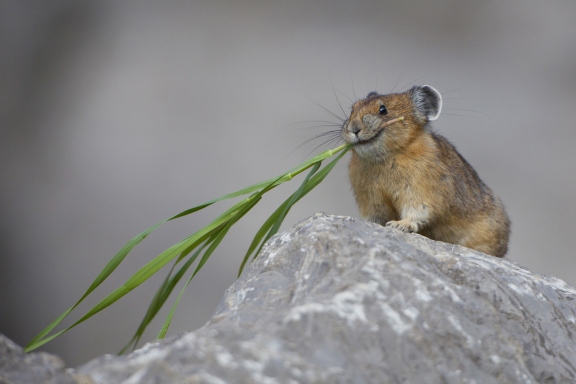 |
| Photo credit: Getty Images |
The pika is a small mammal related to the rabbit with rounded ears and no discernable tail. The American pika, according to the World Wildlife Fund, is particularly vulnerable to global warming because it lives in cool, relatively moist habitats found at high elevations — environments that could shrink dramatically as the Earth heats up.
8. Mandarin Duck
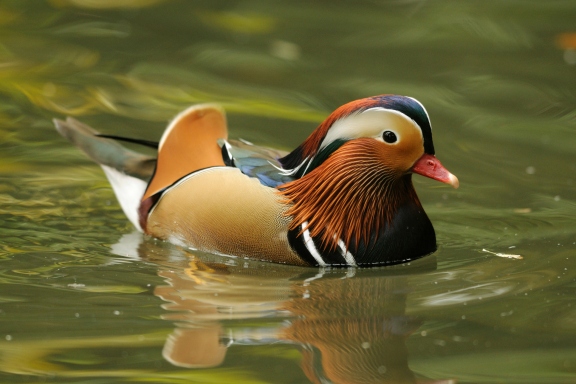 |
| Photo credit: Getty Images |
The Mandarin ducks, native to East Asia, are one of the few duck species that is not hunted or raised for food; apparently they taste awful. The males of the species have dramatic plumage while the females are generally plainer. While development and large scale trapping have thinned their numbers, they’re still found across a wide swath of East Asia.
9. Beluga Whales
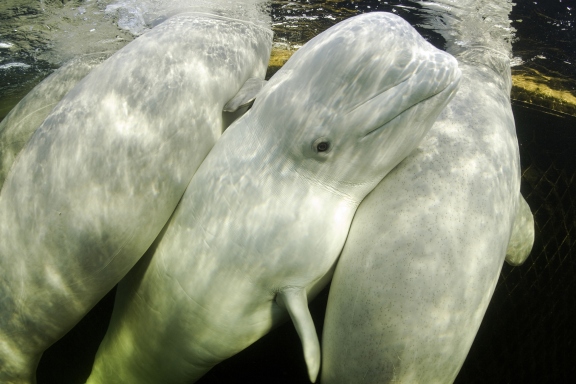 |
| Photo credit: Getty Images |
The Beluga whales were considered to be endangered in their Alaska habitat. There are an estimated 100,000 of the animals left in the wild. The Beluga whales are sometimes known as ‘Canaries of the Sea’, because of their wide range of vocalizations, including clicks, chirps and whistles.
10. Gray Gentle Lemur
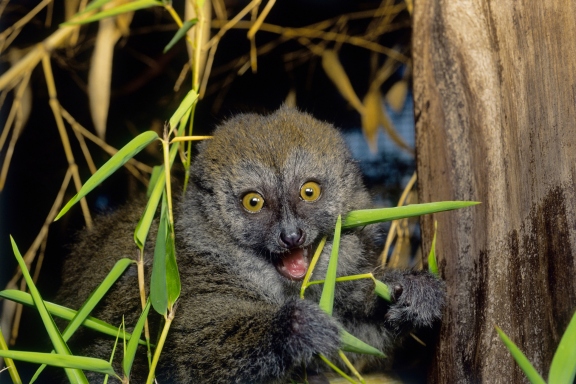 |
| Photo credit: Getty Images |
The Gray Gentle Lemur is one of several species found exclusively in Madagascar, where it feeds on bamboo, giving it its alternate name, the bamboo lemur.
11. Black Footed Ferrets
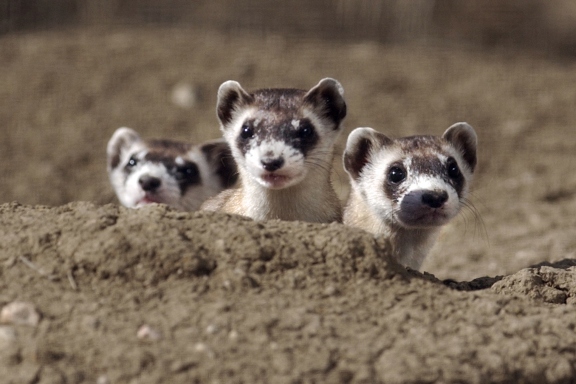 |
| Photo credit: George Kochaniec, Jr. / The Rocky Mountain News / AP |
The black footed ferret, a member of the weasel family, is considered endangered by the IUCN. In fact, the animals were declared extinct in 1979, although two years later a small population was discovered in Wyoming.
12. Matschie’s Tree Kangaroo
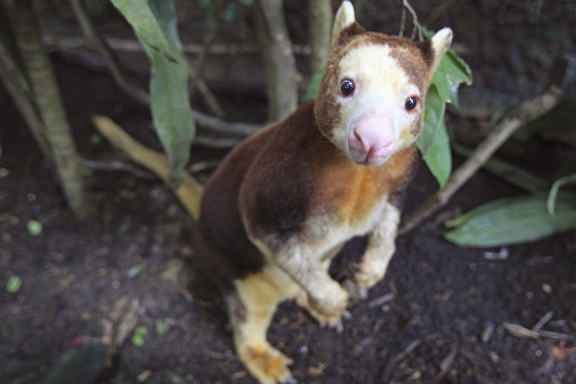 |
| Photo credit: Wong Maye-E / AP |
Found only in the rainforests of Australia, West Papua and Papua New Guinea, the tree kangaroos were considered to be endangered by the IUCN, because of their limited habitat. They literally live in trees, jumping from branch to branch on powerful front and back limbs.
13. Hawaiian Monk Seals
 |
| Photo credit: Jonathan Blair / Corbis |
There are only about 1,100 Hawaiian monk seals left in the wild. Hunted to the brink of extinction in the 19th century, they are now a protected species.
14. Iberian Lynx Cubs
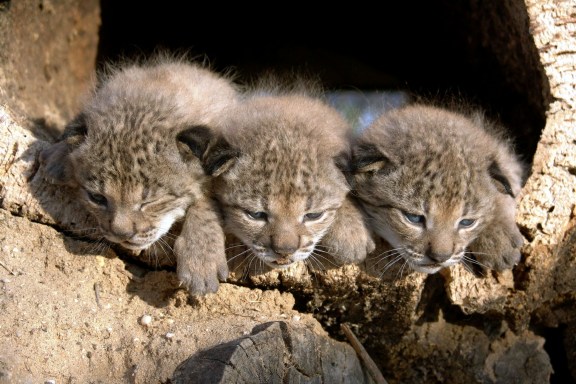 |
| Photo credit: Reuters |
The WWF fears that the Iberian lynx, native to Spain and Portugal, may be the first cat species to go extinct in more than 2,000 years. There are believed to be only 38 breeding females left in wild, thanks to human development and habitat loss.
15. Giant Panda
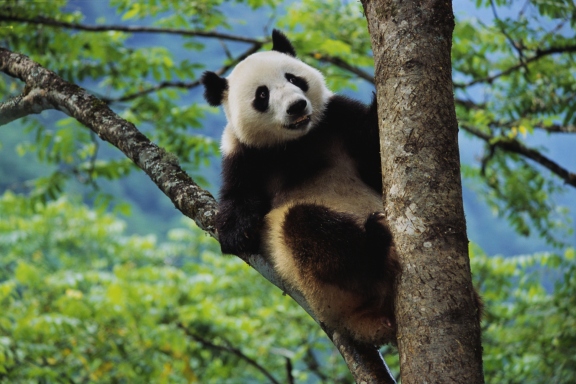 |
| Photo credit: Keren Su / Corbis |
China’s iconic giant panda is struggling to survive; while its numbers appear to be higher than once suspected, there are still believed to be no more than 3,000 left in the wild. Despite strenuous efforts, they also don’t breed very well in captivity; they are also susceptible to poaching in the wild. The panda has been the symbol of the World Wildlife Fund since 1961.
Source: newsfeed.time.com









What are the images! The seventh image of Pika is really very interesting to see. How can you have gather such a wonderful images of an animal? Very glad to see this pics of cute animal.
ReplyDeleteNew York Boxer Puppies for Sale